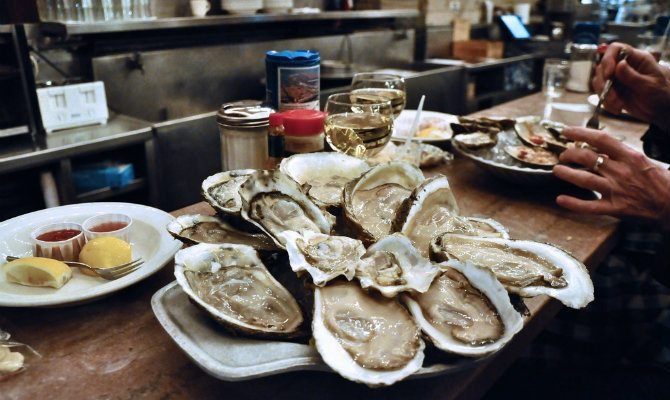'Four Fish' Author Paul Greenberg Offers Simple Advice For Eating Sustainable Seafood
We may receive a commission on purchases made from links.
This week, aquaculture and sustainability journalist Paul Greenberg — whose 2011 book Four Fish: The Future of the Last Wild Food won the James Beard Award for Writing and Literature — shared some essential guidelines for anyone who is interested in becoming a conscientious consumer of seafood.
Greenberg, who has long advocated for the protection of the world's oceans and the billions of pounds of food and human resources provided each year by these waters, writes that he was inspired by journalist Michael Pollan's advice on eating well from In Defense of Food: An Eater's Manifesto: "Eat food. Not too much. Mostly plants."
Greenberg's aquaculture version, published in The New York Times, goes like this: "Eat American seafood. A much greater variety than we currently do. Mostly farmed filter feeders."
We should eat American seafood, Greenberg writes, because the United States does reasonably well, compared with other countries, when it comes to managing its fisheries with a scientific approach, and has been careful to keep an eye on areas of overfishing.
And yet, despite having "a lot of American fish" available, up to 90 percent of the seafood Americans eat is imported from areas where regulation is worse.
Next, we should eat more than shrimp, tuna, and salmon, which dominate our choices. Wild American fish are currently in abundance, but Americans tend to be unaware of these stocks — Atlantic porgy, Acadian redfish, and Pacific sablefish, for example.
Finally, Greenberg says, we should eat more farmed filter feeders like oysters and mussels, which do not require feed. Farmed oysters and mussels are able to live off naturally occurring phytoplankton in the water, thereby cleaning the water and making it more hospitable for different species of fish.
"Food rules are meant to be aspirational, even if they're not always realistic," Greenberg concludes. "We are what we eat, in both our hearts and our minds. And if we're going to take the time to follow rules on land, it seems only fitting that we do the same when out at sea."
